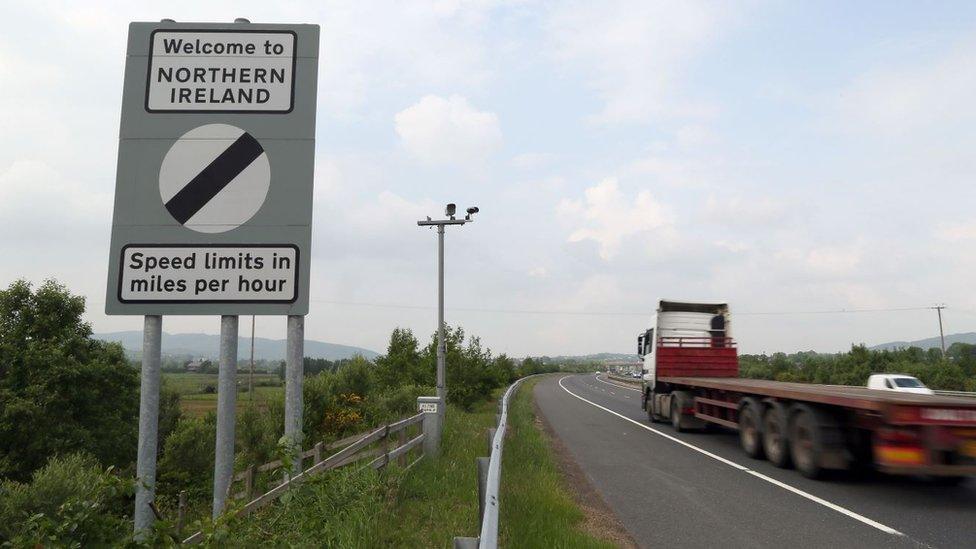More people unionist or nationalist, survey finds
- Published

More people identified themselves as nationalist or unionist in the period running up to the UK's departure from the EU, according to the latest Northern Ireland Life and Times Survey, external.
The research is carried out by annually by Ark, a joint project between Queen's University and Ulster University.
In 2018, 50% of those interviewed told researchers they were neither unionist nor nationalist.
However, this fell back to just 39% in the 2019 survey.
"Neither" remains the biggest single category overall, but this is its lowest point in preferences for 15 years.
The survey found more Catholics (59%) identifying as nationalists than has been the case since 2003.
Correspondingly more Protestants (67%) described themselves as unionists.
Researchers carried out face-to-face interviews with 1,200 people between September 2019 and February 2020; a period which covered Brexit, the last General Election and efforts to restore the Northern Ireland Assembly and Executive.
Despite the three year long failure of the devolved institutions, devolution remained the most preferred form of government with 42% favouring extra powers for Stormont.
Brexit
Queen's academic Dr Katy Hayward told BBC News NI's Good Morning Ulster that she believed the context of Brexit definitely had an impact on how people thought about Northern Ireland and the possibility of a united Ireland.
Of those interviewed, 30% felt a united Ireland is likely in the next 20 years, compared to 46% who disagreed.
Some 77% of nationalists believe Brexit has made a united Ireland more likely, but only 22% of unionists share that view.
Half of those who identified as unionist told researchers they think Brexit will make no difference to the likelihood of constitutional change.